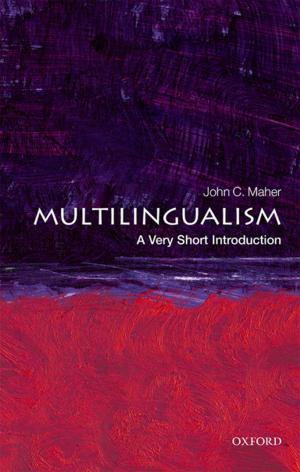Human Rights Obligations of Non-State Actors
Nonfiction, Reference & Language, Law, Social & Cultural Studies, Political Science, Social Science| Author: | Andrew Clapham | ISBN: | 9780191018626 |
| Publisher: | OUP Oxford | Publication: | March 2, 2006 |
| Imprint: | OUP Oxford | Language: | English |
| Author: | Andrew Clapham |
| ISBN: | 9780191018626 |
| Publisher: | OUP Oxford |
| Publication: | March 2, 2006 |
| Imprint: | OUP Oxford |
| Language: | English |
The threats to human rights posed by non-state actors are of increasing concern. Human rights activists increasingly address the activity of multinational corporations, the policies of international organizations such as the World Bank and the World Trade Organization, and international crimes committed by entities such as armed opposition groups and terrorists. This book presents an approach to human rights that goes beyond the traditional focus on states and outlines the human rights obligations of non-state actors. Furthermore, it addresses some of the ways in which these entities can be held legally accountable for their actions in various jurisdictions. The political debate concerning the appropriateness of expanding human rights scrutiny to non-state actors is discussed and dissected. For some, extending human rights into these spheres trivializes human rights and allows abusive governments to distract us from ongoing violations. For others such an extension is essential if human rights are properly to address the current concerns of women and workers. The main focus of the book, however, is on the legal obligations of non-state actors. The book discusses how developments in the fields of international responsibility and international criminal law have implications for building a framework for the human rights obligations of non-state actors in international law. In turn these international developments have drawn on the changing ways in which human rights are implemented in national law. A selection of national jurisdictions, including the United States, South Africa and the United Kingdom are examined with regard to the application of human rights law to non-state actors. The book's final part includes suggestions with regard to understanding the parameters of the human rights obligations of non-state actors. Key to understanding the legal obligations of non-state actors are concepts such as dignity and democracy. While neither concept can unravel the dilemmas involved in the application of human rights law to non-state actors, a better understanding of the tensions surrounding these concepts can help us to understand what is at stake.
The threats to human rights posed by non-state actors are of increasing concern. Human rights activists increasingly address the activity of multinational corporations, the policies of international organizations such as the World Bank and the World Trade Organization, and international crimes committed by entities such as armed opposition groups and terrorists. This book presents an approach to human rights that goes beyond the traditional focus on states and outlines the human rights obligations of non-state actors. Furthermore, it addresses some of the ways in which these entities can be held legally accountable for their actions in various jurisdictions. The political debate concerning the appropriateness of expanding human rights scrutiny to non-state actors is discussed and dissected. For some, extending human rights into these spheres trivializes human rights and allows abusive governments to distract us from ongoing violations. For others such an extension is essential if human rights are properly to address the current concerns of women and workers. The main focus of the book, however, is on the legal obligations of non-state actors. The book discusses how developments in the fields of international responsibility and international criminal law have implications for building a framework for the human rights obligations of non-state actors in international law. In turn these international developments have drawn on the changing ways in which human rights are implemented in national law. A selection of national jurisdictions, including the United States, South Africa and the United Kingdom are examined with regard to the application of human rights law to non-state actors. The book's final part includes suggestions with regard to understanding the parameters of the human rights obligations of non-state actors. Key to understanding the legal obligations of non-state actors are concepts such as dignity and democracy. While neither concept can unravel the dilemmas involved in the application of human rights law to non-state actors, a better understanding of the tensions surrounding these concepts can help us to understand what is at stake.















